#Mireille Juchau
Text
She took refuge in the library during breaks from classes, thrusting her nose into the cloth-bound books and drawing in the fusty scent, woody and comforting, pages cream as lichen.
Machines for Feeling by Mireille Juchau
#Machines for Feeling#Mireille Juchau#Quote#Library#Books#Book#Reading#Read 2016#P. 129#Refuge#Comfort
161 notes
·
View notes
Quote
At times, “The Third Reich of Dreams” also echoes Hannah Arendt, who saw totalitarian rule as “truly total the moment it closes the iron vice of terror on its subjects’ private social lives.” Beradt seems to agree with this premise—she understood dreams as continuous with the culture in which they occur—but she also presents dreams as the one realm of free expression that endures when private life falls under state control. Under such conditions, the dreamer can clarify what might be too risky to describe in waking life.
Mireille Juchau, from “How Dreams Change Under Authoritarianism”
#quotations#mireille juchau#charlotte beradt#dreams#authoritarianism#nazi cw#holocaust cw#the third reich of dreams#this whole article is just !!!#and i wish i could read the book#i drafted a poem in the early days of the current administration#about all the dreams i’d had between the election and the inauguration#but i could never get it right#maybe i should revisit it
4 notes
·
View notes
Text
Save Writing NSW
An open letter to Create NSW and the NSW Minister for the Arts
We, as writers and active members of the literary community, were dismayed by Create NSW’s decision not to grant Writing NSW Multi-Year Organisations Funding in their latest round, despite the fact that Writing NSW was recommended for funding.
This decision demonstrates the ongoing devaluation of literature within the Australian arts funding landscape. We know literature is the most popular artform in the country, with 87% of Australian reading some form of literary work in any given year, yet in this round Create NSW offered only 5.7% of their ongoing funding to literature organisations.
The decision to defund Writing NSW carries a particular sting. Writing NSW is the leading organisation representing writers in a state with a long literary history and one that is home to many of Australia’s leading publishers, writers, literary agents and other core participants in the Australian literary industry.
Writing NSW is an important stepping-stone for writers at the beginning of their careers, providing high quality professional development programs, and it also employs emerging and established writers to deliver and lead these programs. For decades the organisation has provided high-quality courses, seminars, workshops, festivals, events, grants and literary prizes. In putting such programs at risk, Create NSW is jeopardising both an entry point and an ongoing support system for writers.
Macquarie University research shows that the average income of an Australian author from their practice is $12,900. The current economic crisis caused by the coronavirus pandemic makes the situation of writers even more precarious. Writing NSW offers key employment opportunities to writers, through teaching, publication, speaking engagements and both curatorial and judging positions. The removal of these opportunities will mean many writers will not be able to maintain the other income streams that support their writing careers.
The removal of $175,000 from a single source would be catastrophic for any business – not-for-profit or otherwise. For a government funding body to enact such a blunt economic withdrawal in the midst of a global pandemic and without concern for the economic flow-on effect to hundreds of industry professionals is deeply distressing.
We call on Create NSW to reverse this decision and ask them to reveal their future strategies for arts funding and how they plan to rectify the disparity in funding between other funded artforms and literature.
As writers, we will never accept the loss of a vibrant, essential cultural network such as Writing NSW.
What you can do
We invite anyone affected by Create NSW’s decision – writers, publishers, literary agents, illustrators, readers alike – to co-sign this letter. You can copy and customise this letter to draft a version from your own point of view on this matter to send to a Member of Parliament.
To co-sign this letter, add your name here: shorturl.at/dERX6
Signatories
Pip Smith, Writer, creative writing teacher
Sam Twyford-Moore, Writer and arts administrator
Fiona Wright, Writer, editor, critic, reader
Gabrielle Tozer, Author, writer, editor
Brigid Mullane, Editor
Jules Faber, Author, Illustrator
Dr Christopher Richardson, Author and academic
Liz Ledden, Author, podcaster, book reviewer
Kate Tracy
Ashley Kalagian Blunt, Writer, reviewer, reader
Julie Paine, Writer
Nick Tapper, Editor
Belinda Castles, Writer and academic
Simon Veksner, Writer
Amanda Ortlepp, Writer, reader, reviewer, High School English Teacher
Bronwyn Birdsall, Writer, editor
Robin Riedstra, Writer, reviewer, reader, English teacher
Dr Delia Falconer, Writer, critic, academic
Robert McDonald, Author, writer, creative writing teacher
Dr Kathryn Heyman, Author
Wai Chim, Author
Kirsten Krauth, Writer, editor
Tricia Dearborn, Poet, writer, editor
Dr Mireille Juchau, Writer
Gail Jones, Writer
Dr Jeff Sparrow, Writer, editor, academic
Linda Jaivin, Writer, editor, translator
Adara Enthaler, Poet, editor, literary arts manager
Keighley Bradford, Writer, editor, arts and festival administrator
Nicole Priest, Reader and aspiring writer
Shamin Fernando, Writer
Andrew Pippos, Writer
Bianca Nogrady, Writer and journalist
James Bradley, Writer
Ali Jane Smith, Writer
Dr Eleanor Limprecht
Idan Ben-Barak, Writer
Jennifer Mills, Writer
Nicole Hayes, Writer, podcaster
Michelle Starr, Writer/journalist
Phillipa McGuinness, Writer and publisher
Vanessa Berry, Writer and academic
Blake Ayshford, Screenwriter
Emily Maguire, Writer
Sarah Lambert, Screenwriter
Anwen Crawford, Writer
Sarah Bassiuoni, Screenwriter
Jackson Ryan, Writer, journalist, academic
Simon Thomsen, Journalist, editor, other wordy stuff
Ivy Shih, Writer
Miro Bilbrough, Writer, filmmaker, screenwriting teacher, script editor
Graham Davidson, Writer, artist, festival director
Christos Tsiolkas, Writer
JZ Ting, Writer, lawyer
Susan Francis, Writer, teacher
Suneeta Peres da Costa, Writer
Dr Harriet Cunningham, Writer, critic, journalist
Adele Dumont, Writer, reader
Sheree Strange, Writer, book reviewer, book seller
Phil Robinson, Reader
Ashleigh Meikle, Reader, writer, book blogger
Naomi RIddle, Writer, editor
Cathal Gwatkin-Higson, Writer, book seller
Hannah Carroll Chapman, Screenwriter
Angela Meyer, Writer, editor
Steve Blunt, Reader, supporter
Ambra Sancin, Writer, arts administrator
Michelle Baddiley, Writer, reader, archive producer
Dinuka McKenzie, Writer, reader
Catherine C. Turner, Writer, reader, freelance editor and publisher, arts worker
Hilary Davidson, Writer, poet, academic, reader
Dr Eleanor Hogan, Writer
Nicola Robinson, Commissioning Editor
Kim Wilson, Screenwriter
Jane Nicholls, Freelance writer and editor
Lisa Kenway, Writer
Virginia Peters, Writer
Sarah Sasson, Physician-writer and reader
Dr Joanna Nell, Writer
Laura Clarke Author / Copywriter
Nicole Reddy, Screenwriter
Anna Downes, Writer
Sharon Livingstone, Writer, editor, reader
Lily Mulholland, Writer, screenwriter, technical editor
Benjamin Dodds, Poet, reviewer, teacher
Markus Zusak, Writer
Alexandria Burnham, Writer, screenwriter
Sam Coley, Writer
Marian McGuinness, Writer
Selina McGrath, Artist
Adeline Teoh
Natasha Rai, Writer
Catherine Ferrari, Reader
Jessica White, Writer & academic
Zoe Downing, Writer, reader, creative writing student
Amanda Tink, Writer, researcher, reader
Lisa Nicol, Children's author, screenwriter, copywriter
Aurora Scott, Writer
Gillian Polack, Writer, academic
Susan Lever, Critic and writer
Denise Kirby, Writer
Michele Seminara, Poet & editor
Meredith Curnow, Publisher, Penguin Random House
David Ryding, Arts Manager
Catherine Hill
Genevieve Buzo, Editor
Hugo Wilcken
DJ Daniels, Writer
Linda Vergnani, Freelance journalist, writer and editor
Tony Spencer-Smith, Author, writing trainer & editor
Dr Viki Cramer, Freelance writer and editor
Petronella McGovern, Author, freelance writer and editor
Jacqui Stone, Writer and editor
Talia Horwitz, Writer, reader & writing student
Sophie Ambrose, Publisher, Penguin Random House
Rebecca Starford, Publishing director, KYD; editor and writer
David Blumenstein, Writer, artist
Rashida Tayabali, Freelance writer
Sheila Ngoc Pham, Writer, editor and producer
Rosalind Gustafson, Writer
Alan Vaarwerk, Editor, Kill Your Darlings
Gillian Handley, Editor, journalist, writer
Karina Machado
Isabelle Yates, Commissioning Editor, Penguin Random House
Michelle Barraclough, Writer
Natalie Scerra, Writer
Melanie Myers, Writer, editor and Creative Writing teacher
Emily Lawrence, Aspiring Writer
Nicola Aken, Screenwriter
Jennifer Nash, Librarian, writer
Clare Millar, Writer and editor
Kathryn Knight, Editor, Penguin Random House
Linda Funnell, Editor, reviewer, tutor, Newtown Review of Books
Stacey Clair, Editor, writer, former events/projects producer at Queensland Writers Centre
Virginia Muzik, Writer, copyeditor, proofreader, aspiring author
Lisa Walker, Writer
Sarah Morton, Copywriter, aspiring author, Member of Writing NSW Board
Laura Russo, Writer and editor
Vivienne Pearson, Freelance writer
Justin Ractliffe, Publishing Director, Penguin Random House Australia
James Ley, Contributing Editor, Sydney Review of Books
Alison Urquhart, PublisherPenguin Random House
Debra Adelaide, Author and associate professor of creative writing, University of Technology Sydney
Magdalena Ball, Writer, Reviewer, Compulsive Reader
Anna Spargo-Ryan, Writer, writing teacher, editor, reader
Charlie Hester, Social media & project officer, Queensland Writers Centre
Mandy Beaumont, Writer, researcher and reviewer
Chloe Barber-Hancock, Writer, reader, pre-service teacher
Dr Patrick Mullins, Academic and writer
Wendy Hanna, Screenwriter
Chloe Warren
Dianne Masri, Social Media Consultant
Jane Gibian, Writer, librarian, reader
Dr Airlie Lawson, Academic and writer
Karen Andrews, Writer, teacher, reader
Tim Coronel, General manager, Small Press Network and Industry adjunct lecturer, University of Melbourne
Tommy Murphy, Playwright and screenwriter
Evlin DuBose, Editor, writer, screenwriter, director, poet, UTS's Vertigo Magazine
Tony Maniaty, Writer
Emma Ashmere, Writer, reader, teacher
Alicia Gilmore, Writer
Suzanne O'Sullivan, Publisher, Hachette Australia
Jacqui DentWriter, Content Strategist
Rachel Smith, Writer
Intan Paramaditha, Writer
Cassandra Wunsch, Director TasWriters (The Tasmanian Writers Centre)
Meera Atkinson
Eileen Chong, Poet, Writer, Educator
Debra Tidball, Author, reviewer
Beth Spencer, Author, poet, reader
Lou Pollard, Comedy writer, blogger
Bronwyn Stuart/Tilley, Author and program coordinator, Writers SA
Gemma Patience, Writer, illustrator, reviewer
Amarlie Foster, Writer, teacher
Dr Felicity Plunkett, writer
Angela Betzien
Drew Rooke, Journalist and author
Michael Mazengarb, Journalist RenewEconomy
Katrina Roe, Children's author, broadcaster, audiobook narrator
Liz Doran, Screenwriter
Arnold Zable, Writer.
Tom Langshaw, Editor, Penguin Random House
Brooke Maddison
Monica O'Brien, ProducerAmbience Entertainment
Jacinta Dimase, Literary AgentJacinta Dimase Management
Jane Novak, Literary AgentJane Novak Literary Agency
Sarah Hollingsworth, Arts Organisation ManagerMarketing and Communications Manager, Writers Victoria
Barbara Temperton, Writer
Sandra van Doorn, Publisher Red Paper Kite
Alex Eldridge, Writer
Karen Beilharz, Writer, editor, comic creator
Esther Rivers, Writer, editor, poet
Jane Pochon, Board Member, lawyer and reader
Zoe Walton, Publisher, Penguin Random House
Eliza Twaddell
Alison Green, CEO, Board Member, Pantera Press
Emma Rafferty, Editor
Sarah Swarbrick, Writer
Dayne Kelly, Literary Agent, RGM
Léa Antigny, Head of Publicity and Communications, Pantera Press
Jenny Green, Finance, Pantera Press
Sarah Begg, Writer
Mark Harding, Writer, Brand Manager, Social Media and Content Specialist
Shanulisa Prasad, Bookseller
Katy McEwen, Rights Manager, Pantera Press
Olivia Fricot, Content Writer/Bookseller, Booktopia
Jack Peck, Writer, Open Genre Group Convenor, Writing NSW, Retired
Kathy Skantzos, Writer, Editor
Serene Conneeley, Author, Editor
Kerry Littrich, Writer
Merran Hughes, Creative
Cassie Watson, Writer
Lisa Seltzer, Copywriter, Social Media Manager and Marketing Consultant
Gemma Noon, Writer and Librarian
Tanya Tabone, Reader
Laura Franks, Reader, Editor, Writer
Dani Netherclift, Writer
Who to contact
We urge you to join us in advocating for Writing NSW and the state of funding for Australian literature, by contacting Create NSW, your NSW Member of Parliament, and the NSW Minister for the Arts.
Chris Keely
Executive Director, Create NSW
Email: [email protected]
The Hon. Don Harwin, MLC
Phone: (02) 8574 7200
Email: [email protected]
Who to else to contact
The Hon. (Walt) Walter Secord, MLC
Shadow Minister for the Arts
Phone: (02) 9230 2111
Email: [email protected]
Ms. Cate Faehrmann, MLC
Greens representative for Arts, Music, Night-Time Economy and Culture
Phone: (02) 9230 3771
Email: [email protected]
A full list of names and contact details for NSW State MPs is available here.
4 notes
·
View notes
Text
Rule: tag people you would like to get to know better or catch up with.
@amazingbouncingassbutt tagged me in this thing so here we go!
1. Three ships in any order
Okay I’m gonna be honest, I haven’t really been consuming much media that I’ve found to have shippable characters in it lately?? Okay so I’m sort of still a little bit stuck on queliot... also I reread the lord of the rings books recently and man... Frodo and Sam really is the relationship and I will never get over it. For a third??? Uum I guess andreil from the foxhole court is still like up there, it’s like a go to for short fics and stuff and I do love em.
2. Last song
Leon by the Japanese house I think was the last one I put on myself but I’m not sure if it’s the last one I listened to cause me and my family and cousins were all cuing songs so actually I have no idea
3. Last movie
Probably Colette I think. It’s been a few weeks and I don’t think I’ve watched anything else since but I’m not entirely sure.. I watch movies very infrequently
4. Currently reading
Oh god... the question of shame. Okay so I don’t know if some of these even count as “currently reading” anymore, like how long can it go between picking a book up for it to count as “currently reading”? Okay but the ones that are listed as such on my Goodreads right now are Ovids metamorphoses which I haven’t been actively reading for like a year and a half, Arcadia by Iain Pears which I haven’t been actively reading since September, the death of the animal by Paola Cavalieri which I doubt I’ll actually finish but I still maybe want to, the world without us by Mireille Juchau which I kinda want to finish but I’ve not picked it up in too long so I’ve forgotten a lot and that makes it a pain to get into again, and lastly whiskey when we’re dry by John Larison which has taken me more than a month to not get even 40% into but which I really want to finish cause it’s a queer “girl dressed up as boy” western, which sounds like it should be great and so far I kinda like it but it’s also a liiitle slow going. Also I’m probably gonna start assassins quest by Robin Hobb tomorrow cause I finished royal assassin yesterday and I’m really enjoying the series! so like what I’m getting out of this is that high fantasy on audiobook is really where it’s at for me right now cause that describes the last four books that I’ve actually finished
5. Currently watching
Really not much.. I’m almost finished with queer eye season 5 but that’s about it really. I’ve been debating whether or not to watch the last season of the magicians even though they fucked up big time but I’m not sure yet. Also I’m gonna watch the new season of killing eve sometime in a near future hopefully and with all the atla stuff on here right now I kinda want a rewatch
6. Currently consuming
Some toast and a cup of lemon balm and mint tea fresh from my garden. I have so much lemon balm and the mint is spreading... I don’t know what the hell to do with them except tea so yeah.. here we are... it’s good though!
7. Food I'm craving atm
Right now I’m craving everything and nothing at the same time. I’m kinda hungry which is weird considering I’ve eaten a lot this evening, but I’m also not really in any mood for anything specific. Okay that’s a lie actually.. I’m always in the mood for some chocolate, preferably something with sea salt in it
I’m gonna tag @howyoutalktoyourgrandma and @themagicalmedusa if you wanna do it!!
2 notes
·
View notes
Text
So I’ve managed to make it through my short story read begrudgingly and I have many thoughts... by which I mean I have many thoughts about a complete lack of thoughts I’m experiencing for this story. It may just be because I’m tired but I have 10 questions to choose from and after my first read through I feel as though I’m unable to answer a single one with any sense of certainty.
“After the Strider, the Stranger” by Mireille Juchau was the assigned reading task and I can honestly say that I did not enjoy it at all. If anyone’s interested, my thoughts are below the cut.
For myself personally, the writing style feels awkward and what dialogue there is feels very lacking. As a whole, the story focuses a lot on memories that stray very close to feeling like some shoddy version of a flashback and they provide more confusion than clarity for me personally. I already know I’m going to have to re-read it at least once before I can even begin to grasp what this story was trying to tell me and that’s very frustrating.
It’s entirely possible and perhaps even likely that the reason I’m struggling so much is because this type of story is the exact opposite of what I like to read. I need fantasy, things set in fantastical worlds that promote creatures of myth and offer me exciting tales of adventure. Alternatively, I need suspense. I need mystery, the supernatural or an element of horror/thriller. For a short piece, I can even enjoy something focused on psychology or emotions, putting the reader in the characters shoes.
This story is none of these things. It’s set in the realistic world where-in two cultures combine and tells of a story that reads too much like a real account. I almost feel like I was reading through a transcript of an old news show from ACA or something to that extent and I honestly did not enjoy that at all.
Stay tuned for further complaints tomorrow.
2 notes
·
View notes
Text
Friday essay: how speculative fiction gained literary respectability
by Rose Michael
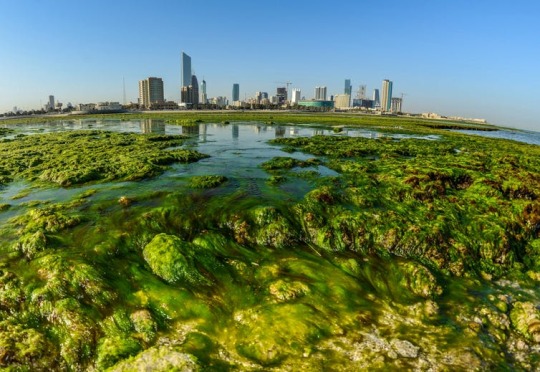
Biologists are gathering evidence of green algae (pictured here in Kuwait) becoming carbohydrate-rich but less nutritious, due to increased carbon dioxide levels. As science fiction becomes science fact, new forms of storytelling are emerging. Raed Qutena
I count myself lucky. Weird, I know, in this day and age when all around us the natural and political world is going to hell in a handbasket. But that, in fact, may be part of it.
Back when I started writing, realism had such a stranglehold on publishing that there was little room for speculative writers and readers. (I didn’t know that’s what I was until I read it in a reader’s report for my first novel. And even then I didn’t know what it was, until I realised that it was what I read, and had always been reading; what I wrote, and wanted to write.) Outside of the convention rooms, that is, which were packed with less-literary-leaning science-fiction and fantasy producers and consumers.
Realism was the rule, even for those writing non-realist stories, such as popular crime and commercial romance. Perhaps this dominance was because of a culture heavily influenced by an Anglo-Saxon heritage. Richard Lea has written in The Guardian of “non-fiction” as a construct of English literature, arguing other cultures do not distinguish so obsessively between stories on the basis of whether or not they are “real”.
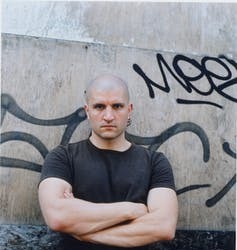
China Miéville in 2010. Pan MacMillan Australia/AAP
Regardless of the reason, this conception of literary fiction has been widely accepted – leading self-described “weird fiction” novelist China Miéville to identify the Booker as a genre prize for specifically realist literary fiction; a category he calls “litfic”. The best writers Australia is famous for producing aren’t only a product of this environment, but also role models who perpetuate it: Tim Winton and Helen Garner write similarly realistically, albeit generally fiction for one and non-fiction for the other.
Today, realism remains the most popular literary mode. Our education system trains us to appreciate literatures of verisimilitude; or, rather, literature we identify as “real”, charting interior landscapes and emotional journeys that generally represent a quite particular version of middle-class life. It’s one that may not have much in common these days with many people’s experiences – middle-class, Anglo or otherwise – or even our exterior world(s).
Like other kinds of biases, realism has been normalised, but there is now a growing recognition – a re-evaluation – of different kinds of “un-real” storytelling: “speculative” fiction, so-called for its obviously invented and inventive aspects.
Feminist science-fiction writer Ursula K. Le Guin has described this diversification as:
a much larger collective conviction about who’s entitled to tell stories, what stories are worth telling, and who among the storytellers gets taken seriously … not only in terms of race and gender, but in terms of what has long been labelled “genre” fiction.
Closer to home, author Jane Rawson – who has written short stories and novels and co-authored a non-fiction handbook on “surviving” climate change – has described the stranglehold realistic writing has on Australian stories in an article for Overland, yet her own work evidences a new appreciation for alternative, novel modes.

Rawson’s latest book, From the Wreck, intertwines the story of her ancestor George Hills, who was shipwrecked off the coast of South Australia and survived eight days at sea, with the tale of a shape-shifting alien seeking refuge on Earth. In an Australian first, it was long-listed for the Miles Franklin, our most prestigious literary award, after having won the niche Aurealis Award for Speculative Fiction.
The Aurealis awards were established in 1995 by the publishers of Australia’s longest-running, small-press science-fiction and fantasy magazine of the same name. As well as recognising the achievements of Australian science-fiction, fantasy and horror writers, they were designed to distinguish between those speculative subgenres.
Last year, five of the six finalists for the Aurealis awards were published, promoted and shelved as literary fiction.
A broad church
Perhaps what counts as speculative fiction is also changing. The term is certainly not new; it was first used in an 1889 review, but came into more common usage after genre author Robert Heinlein’s 1947 essay On the Writing of Speculative Fiction.
Whereas science fiction generally engages with technological developments and their potential consequences, speculative fiction is a far broader, vaguer term. It can be seen as an offshoot of the popular science-fiction genre, or a more neutral umbrella category that simply describes all non-realist forms, including fantasy and fairytales – from the epic of Gilgamesh through to The Handmaid’s Tale.
While critic James Wood argues that “everything flows from the real … it is realism that allows surrealism, magic realism, fantasy, dream and so on”, others, such as author Doris Lessing, believe that everything flows from the fantastic; that all fiction has always been speculative. I am not as interested in which came first (or which has more cultural, or commercial, value) as I am in the fact that speculative fiction – “spec-fic” – seems to be gaining literary respectability. (Next step, surely, mainstream popularity! After all, millions of moviegoers and television viewers have binge-watched the rise of fantastic forms, and audiences are well versed in unreal onscreen worlds.)
One reason for this new interest in an old but evolving form has been well articulated by author and critic James Bradley: climate change. Writers, and publishers, are embracing speculative fiction as an apt form to interrogate what it means to be human, to be humane, in the current climate – and to engage with ideas of posthumanism too.
These are the sorts of existential questions that have historically driven realist literature.
According to the World Wildlife Fund’s 2018 Living Planet Report, 60% of the world’s wildlife disappeared between 1970 and 2012. The year 2016 was declared the hottest on record, echoing the previous year and the one before that. People under 30 have never experienced a month in which average temperatures are below the long-term mean. Hurricanes register on the Richter scale and the Australian Bureau of Meteorology has added a colour to temperature maps as the heat keeps on climbing.
Science fiction? Science fact.
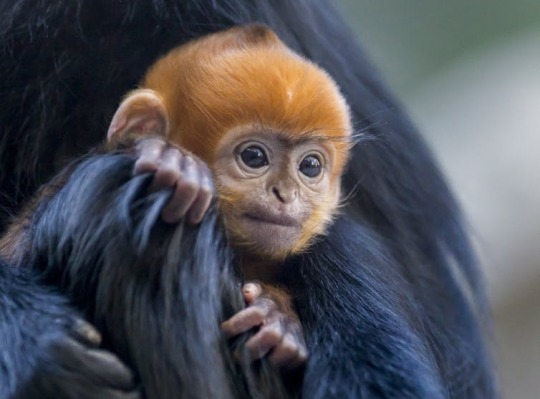
A baby Francois Langur at Taronga Zoo in June. François Langurs are a critically endangered species found in China and Vietnam. AAP Image/Supplied by Taronga Zoo
What are we to do about this? Well, according to writer and geographer Samuel Miller-McDonald, “If you’re a writer, then you have to write about this.”
There is an infographic doing the rounds on Facebook that shows sister countries with comparable climates to (warming) regions of Australia. But it doesn’t reflect the real issue. Associate Professor Michael Kearney, Research Fellow in Biosciences at the University of Melbourne, points out that no-one anywhere in the world has any experience of our current CO2 levels. The changed environment is, he says – using a word that is particularly appropriate for my argument – a “novel” situation.
Elsewhere, biologists are gathering evidence of algae that carbon dioxide has made carbohydrate-rich but less nutritious. So the plankton that rely on them to survive might eat more and more and yet still starve.
Fiction focused on the inner lives of a limited cross-section of people no longer seems the best literary form to reflect, or reflect on, our brave new outer world – if, indeed, it ever was.
Whether it’s a creative response to catastrophic climate change, or an empathic, philosophical attempt to express cultural, economic, neurological – or even species – diversification, the recognition works such as Rawson’s are receiving surely shows we have left Modernism behind and entered the era of Anthropocene literature.

And her book is not alone. Other wild titles achieving similar success include Krissy Kneen’s An Uncertain Grace, shortlisted for the Aurealis, the Stella prize and the Norma K. Hemming award – given to mark excellence in the exploration of themes of race, gender, sexuality, class or disability in a speculative fiction work.
Kneen’s book connects five stories spanning a century, navigating themes of sexuality – including erotic explorations of transgression and transmutation – against the backdrop of a changing ocean.
Earlier, more realist but still speculative titles (from 2015) include Mireille Juchau’s The World Without Us and Bradley’s Clade. These novels fit better with Miéville’s description of “litfic”, employing realistic literary techniques that would not be out of place in Winton’s books, but they have been called “cli-fi” for the way they put climate change squarely at the forefront of their stories (though their authors tend to resist such generic categorisation).
Both novels, told across time and from multiple points of view, are concerned with radically changed and catastrophically changing environments, and how the negative consequences of our one-world experiment might well – or, rather, ill – play out.
Catherine McKinnnon’s Storyland is a more recent example that similarly has a fantastic aspect. The author describes her different chapters set in different times, culminating – Cloud Atlas–like, in one futuristic episode – as “timeslips” or “time shifts” rather than time travel. Yet it has been received as speculative – and not in a pejorative way, despite how some “high-art” literary authors may feel about “low-brow” genre associations.
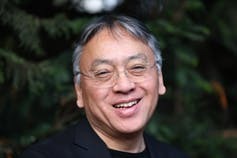
Kazuo Ishiguro in 2017. Neil Hall/AAP
Kazuo Ishiguro, for instance, told The New York Times when The Buried Giant was released in 2015 that he was fearful readers would not “follow him” into Arthurian Britain. Le Guin was quick to call him out on his obvious attempt to distance himself from the fantasy category. Michel Faber, around the same time, told a Wheeler Centre audience that his Book of Strange New Things, where a missionary is sent to convert an alien race, was “not about aliens” but alienation. Of course it is the latter, but it is also about the other.
All these more-and-less-speculative fictions – these not-traditionally-realist literatures – analyse the world in a way that it is not usually analysed, to echo Tim Parks’s criterion for the best novels. Interestingly, this sounds suspiciously like science-fiction critic Darko Suvin’s famous conception of the genre as a literature of “cognitive estrangement”, which inspires readers to re-view their own world, think in new ways, and – most importantly – take appropriate action.
A new party

Perhaps better case studies of what local spec-fic is or does – when considering questions of diversity – are Charlotte Wood’s The Natural Way of Things and Claire Coleman’s Terra Nullius.
The first is a distinctly Aussie Handmaid’s Tale for our times, where “girls” guilty by association with some unspecified sexual scenario are drugged, abducted and held captive in a remote outback location.
The latter is another idea whose time has come: an apocalyptic act of colonisation. Not such an imagined scenario for Noongar woman Coleman. It’s a tricky plot to tell without giving away spoilers – the book opens on an alternative history, or is it a futuristic Australia? Again, the story is told through different points of view, which prioritises collective storytelling over the authority of a single voice.
“The entire purpose of writing Terra Nullius,” Coleman has said, “was to provoke empathy in people who had none.”
This connection of reading with empathy is a case Neil Gaiman made in a 2013 lecture when he told of how China’s first party-approved science-fiction and fantasy convention had come about five years earlier.

Neil Gaiman. Julien Warnand/EPA
The Chinese had sent delegates to Apple and Google etc to try to work out why America was inventing the future, he said. And they had discovered that all the programmers, all the entrepreneurs, had read science fiction when they were children.
“Fiction can show you a different world,” said Gaiman. “It can take you somewhere you’ve never been.”
And when you come back, you see things differently. And you might decide to do something about that: you might change the future.
Perhaps the key to why speculative fiction is on the rise is the ways in which it is not “hard” science fiction. Rather than focusing on technology and world-building to the point of potential fetishism, as our “real” world seems to be doing, what we are reading today is a sophisticated literature engaging with contemporary cultural, social and political matters – through the lens of an “un-real” idea, which may be little more than a metaphor or errant speculation.

About The Author:
Rose Michael is a Lecturer, Writing & Publishing at RMIT University
This article is republished from our content partners at The Conversation under a Creative Commons license.
13 notes
·
View notes
Photo
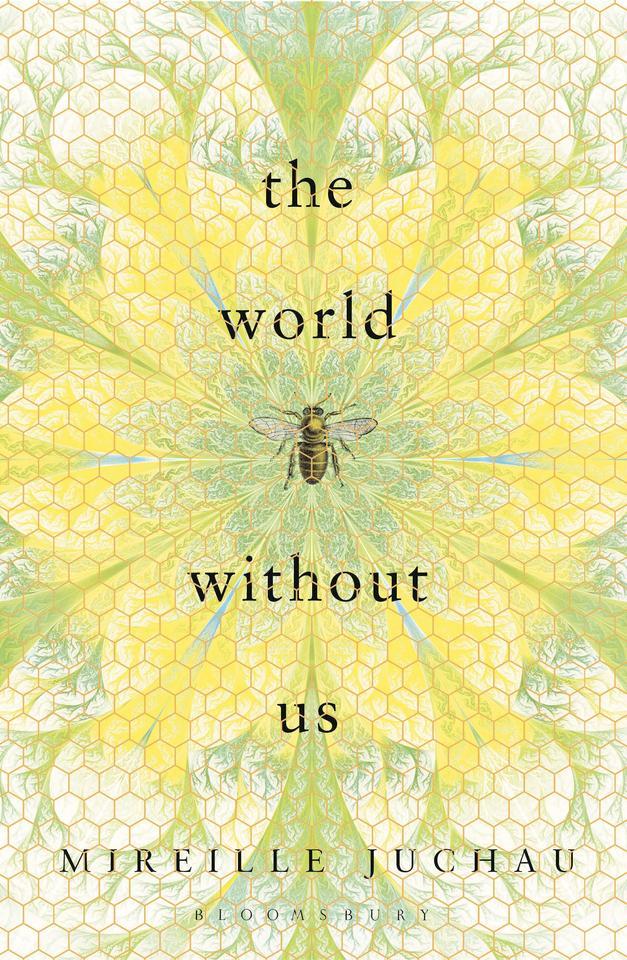
dear all of tumblr who love bees especially those who aren’t australian,
you should check out mireille juchau’s novel “the world without us”. it’s a cli-fi book about a small australian community, particularly about a family of beekeepers and their farm. it’s a trauma narrative and involves a lot of discussion of family and mothers and the earth, and ofc most importantly is hugely about the importance of bees. really beautiful book, 10/10 recommend!!
:) husky
#smilegogh#twinklepeach#bees#save the bees#this is a really good book! thought some ppl might not have heard of it because its aussie lol#lit#my txt
41 notes
·
View notes
Link
Mireille Juchau | 07 nov 2019
0 notes
Text
How Dreams Change Under Authoritarianism: Charlotte Beradt’s “The Third Reich of Dreams”
Mireille Juchau on Charlotte Beradt’s “The Third Reich of Dreams,” which uncovers the effects of authoritarian regimes on the collective unconscious.
from Humor, Satire, and Cartoons https://ift.tt/2Cl0pXB
from Blogger https://ift.tt/2pTiysP
0 notes
Photo
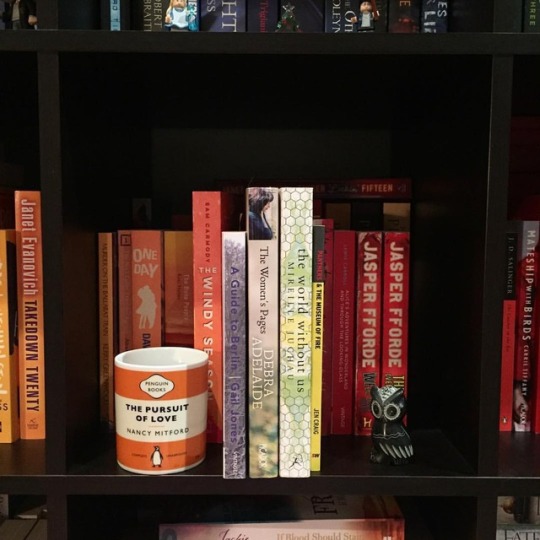
New blog post at thebookkat.com! Four Australian titles from the 2016 Stella Prize longlist that have induced very conflicting emotions! Have you read these books - A Guide to Berlin by Gail Jones, The Women's Pages by Debra Adelaide, The World Without Us by Mireille Juchau and Panthers and the Museum of Fire by Jen Craig - and if yes, what did you think? . #bookshelfie #igreads #book #shelfie #bookstagram #bookworm #bibliophile #bookphotography #bookish #bookgram #bookworm #reading #bookreview #bookblogger #bookreviewer #melbournegirl #tbrpile #australianfiction #loveozlit #womenswriting #stellaprize16 #aguidetoberlin #thewomenspages #theworldwithoutus #panthersandthemuseumoffire
#bibliophile#book#igreads#theworldwithoutus#womenswriting#reading#loveozlit#bookstagram#shelfie#melbournegirl#tbrpile#thewomenspages#bookreviewer#bookblogger#bookshelfie#stellaprize16#panthersandthemuseumoffire#australianfiction#bookgram#bookreview#bookworm#bookphotography#aguidetoberlin#bookish
3 notes
·
View notes
Link
This Woman's Great Grandparents Were Killed At Auschwitz After They Were Rejected As Refugees
0 notes
Text

Machines for Feeling by Mireille Juchau
#Machines for Feeling#Mireille Juchau#Book Cover#Books#Book#Reading#Read 2016#Book Photography#MBP#MD#Sarah McMahon#Digital Photography
15 notes
·
View notes
Text
Woman's message to Malcolm Turnbull about Muslim ban
Woman's message to Malcolm Turnbull about Muslim ban
[ad_1]
A woman whose great grandparents were murdered in Auschwitz has made an emotional plea to Prime Minister Malcolm Turnbull to stand up to US President Donald Trump about his Muslim immigration ban.
Sydney writer Mireille Juchau took to Twitter on Sunday to make the plea after President Trump signed an executive order on Friday making major changes to America’s policies on refugees and…
View On WordPress
#1#a genuine medical condition that explains why I never listen to a word my wife says#Archive#Arts#Australia#Back to top#Cameron Phelps For Daily Mail Australia#Daily Mail#DAILY MAIL COMMENT: Co-op#DailyMail#discounts#EPHRAIM HARDCASTLE: The zipless dress once considered &039;risque&039;... that has proved a hit thanks to the Duchess of Cambridge#Fashion Finder#Femail#Find out now#France#Headlines#Health#Home#house rules#JAN MOIR: Four mothers who epitomise everything that&039;s awful about Britain#Labour and a betrayal of values#Latest Headlines#Login#Logout#Mobile Apps#Money#Most read#My Profile#News
0 notes
Quote
I wanted to explore... what happens to us when we don't recognize the places we're attached to.
Mireille Juchau on her new book The World Without Us
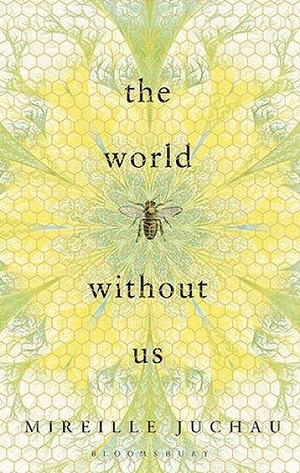
1 note
·
View note
Text
She had begun to think of herself as a kind of love vampire, taking but unable to return it.
Machines for Feeling by Mireille Juchau
9 notes
·
View notes
Text
Dreams are important. They're comforting evidence: someone's still there, travelling in dark country.
Machines for Feeling by Mireille Juchau
#Machines for Feeling#Mireille Juchau#Quote#Dream#Comfort#Travel#Book#Books#Reading#Read 2016#P. 223
2 notes
·
View notes